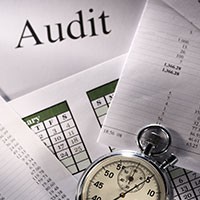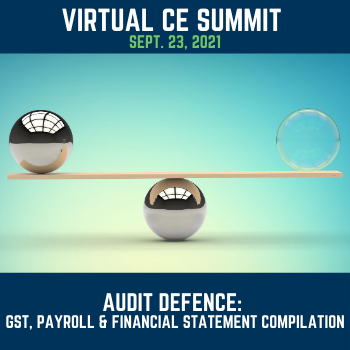Last updated: September 01 2021
The Limitation Period: Providing Taxpayer Certainty for Tax Audit Risk

Marco Iampieri B.A., JD, M.B.A.
When can a taxpayer feel certain that their liability to tax will not change for a taxation year or period? It’s an important question to discuss with clients seeking reassurance on their future tax risk. In fact, limitation periods under the Income Tax Act and Excise Tax Act (HST/GST) provide a level of certainty for taxpayers regarding their liability to tax.
The Income Tax Act, subsection 152(3.1) provides taxpayers with the definition of the normal reassessment period. It states, among other things, that individuals and Canadian-Controlled Private Corporations have a normal reassessment period that ends three years after the earlier of the day of sending a notice of original assessment under Part 1 of the Income Tax Act in respect of the taxpayer.
For mutual fund trusts or a corporation other than a Canadian-controlled private corporation, the normal reassessment period ends four years after the earlier of the day of sending a notice of an original assessment under Part 1 of the Income Tax Act.
For corporate tax returns, note that the limitation period outlined in 152(3.1) technically only applies to Part 1 of the Income Tax Act. Other parts of the ITA reference subsection 152(3.1) and  state that 152(3.1) apply subject to reasonable modification. However, for the purposes of this general article it is reasonable to state that an advisor has a reasonable amount of certainty regarding any reassessment to statute-barred years after three years.
state that 152(3.1) apply subject to reasonable modification. However, for the purposes of this general article it is reasonable to state that an advisor has a reasonable amount of certainty regarding any reassessment to statute-barred years after three years.
It is also important to note that a taxpayer must file a return under Part I of the Income Tax Act or Excise Tax Act in order to benefit from the limitation periods provided therein. However, subsection 152(4) states, among other things, that the Minister may at any time make an assessment notwithstanding the limitation period outlined in subsection 152(3.1), if the taxpayer in filing the return has made any misrepresentation that is attributable to neglect, carelessness or wilful default or has committed any fraud in filing the return or in supplying any information under the Income Tax Act.
Another exception to the normal reassessment limitation periods occurs when the taxpayer has filed a waiver. The filing of a waiver can extend the normal limitation period at the option or the taxpayer; which must be initiated on form T2029-10e. Under this option, time is granted for the taxpayer and the Minister to “cooperate” in determining what the correct tax liability is. However, it is extremely important to limit scope, to keep the discussions from veering off into other matters the Minister may wish to open during the extension period. In an excellent paper on the matter of filing waivers and how disputes have fared in court, researcher Sas Ansari notes:
“. . .the waiver is also a negotiated agreement between the Minister and the Taxpayer, not dissimilar to a contract among private parties. . . .In interpreting waivers, the courts must be cognizant of the part that the item being interpreted plays in the overall process, and then apply (as appropriate) either statutory or contract law principles, necessarily modified to fit the administrative context of waivers.”
An example:
ABC Corporation is a Canadian-controlled Private Corporation that has filed its 2020 taxation year return on June 1, 2021. ABC Corporation received a Notice of Assessment on June 7, 2021 in respect of its 2020 taxation year.
When does the limitation period apply to ABC Corporation’s 2020 tax return?
The limitation period under subsection 152(3.1) of the Income Tax Act applies in respect of ABC Corporation’s 2020 tax return starting on June 7, 2024.
Beyond June 7, 2024, ABC Corporation may benefit from the certainty provided for in the legislation that the Minister will not reassess ABC Corporation in respect of their 2020 taxation year, unless ABC Corporation signs a waiver in prescribed form T2029-10e in respect of the normal reassessment period or extended reassessment period or under the circumstances outlined under subsection 152(4) of the Income Tax Act.
Excise Tax Act
Under the Excise Tax Act, subsection 298(1) provides taxpayers with the definition of the period for assessment, which states, among other things, that an assessment of a person shall not be made for an assessment of net tax of the person for a reporting period of the person more than four years after the later of the day on or before which the person was required to file a return for the period.
Subsection 298(4) of the Excise Tax Act provides that at any time an assessment may be made where the person to be assessed has made a misrepresentation that is attributable to the person’s neglect, carelessness or wilful details, committed fraud in filing a return under the applicable Part of the Excise Tax Act or filed a waiver within the normal reassessment period.
An example:
ABC Corporation is a Canadian-controlled Private Corporation that has filed its first quarter net tax return (GST/HST) April 30, 2021. ABC Corporation received a Notice of Assessment on May 5, 2021 in respect of its first quarter net tax return.
When does the period for assessment apply to ABC Corporation’s first quarter net tax return?
The period for assessment under subsection 298(1) of the Income Tax Act applies in respect of ABC Corporations first quarter net tax return starting on May 5, 2025. Beyond May 5, 2025, ABC Corporation may benefit from the certainty provided for in the legislation that the Minister will not reassess ABC Corporation in respect of their first quarter net tax return unless ABC Corporation signs a waiver in respect of the period or under the circumstances outlined under subsection 298(4) of the Excise Tax Act.
Remember that the significance of the waiver is that it does waive the taxpayer’s rights regarding the normal assessment period, in favor of time to determine the correct tax on a limited issue or scope of issues.
Jurisprudence and a Reverse Onus
While the onus of proof is generally on the taxpayer, decisions of the Tax Court of Canada hold that when the Minister reassesses a taxpayer for taxation years beyond the applicable limitation period, the Minister has the onus of proving why the Tax Court of Canada should overlook the limitation period under the Income Tax Act or the Excise Tax Act and uphold the tax reassessment.
Takeaway
Advisors should be aware of limitation periods throughout Canadian taxation statutes and be prepared to share these with their clients as a matter of course. Advisors should also seek and heed the advice of tax lawyer counsel during adversarial situations with the Canada Revenue Agency, the waiving of taxpayer rights in respect of the limitation period, and during situations when a reassessment is beyond the normal reassessment period.
Additional Educational Resource – Knowledge Bureau’s Evergreen Explanatory Notes will be your go-to reference for answers to your personal and corporate tax questions and the GST/HST. You’ll have your own educational research library of plain-language information topics such as Notice of Objection, Waivers, and other applicable files in Personal and Corporate/GST Libraries. Subscribe today!
